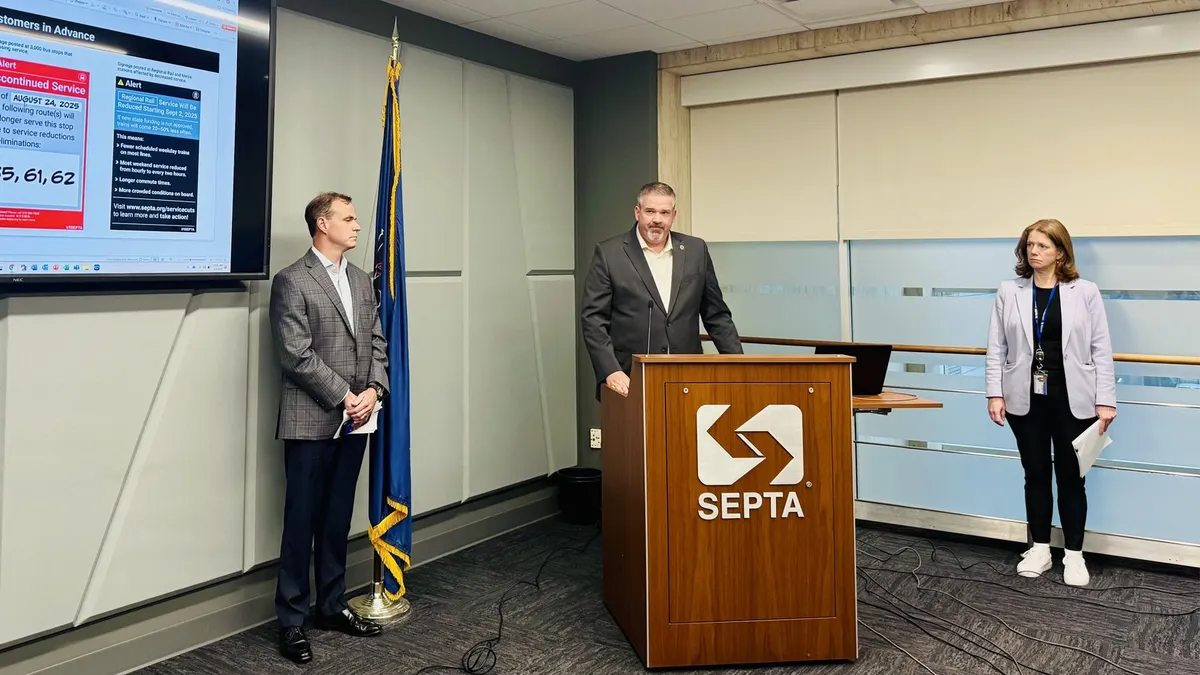Dive Brief:
- Commuters in the Philadelphia area faced a 20% cut in service Monday morning as the Southeastern Pennsylvania Transportation Authority addressed a budget shortfall brought about by “a lack of state transit funding,” the agency said on its website.
- SEPTA eliminated 32 bus routes and shortened 16 other routes; service has been reduced on 88 additional bus and Metro rail routes. A 21.5% fare increase will follow on Sept. 1, with regional rail service reductions coming Sept. 2.
- While Amtrak Northeast Corridor trains that run through Philadelphia aren’t immediately affected, “the potential reduction in SEPTA’s financial contribution [to Amtrak] will have a negative impact on Amtrak’s ability to reinvest in the rail network," an Amtrak spokesperson said in a statement.
Dive Insight:
SEPTA served nearly 670,000 riders daily in July. With the service cuts in place, late-night workers may need to find alternate ways to get to and from their jobs and over 50,000 students had to find new routes Monday on the first day of school in the city, The Philadelphia Inquirer reported.
The service cuts, which began to go into effect Sunday, are the first of several steps SEPTA is taking to plug a $213 million budget deficit.

As of last week, the state legislature, comprised of a Democratic-led House and a Republican-led Senate, couldn’t agree on funding for the transit authority. According to the Inquirer, Republican senators wanted to draw on some $1 billion in the state’s Public Transportation Trust Fund for capital projects. Democrats countered that would take away funds needed for bridge and road repairs.
If a solution is not reached before the end of the year, SEPTA said further cuts would go into effect Jan. 1, 2026, bringing total reductions to 45% of pre-existing service. The cuts would eliminate five regional rail lines and 18 more bus routes, with all train service ending at 9 p.m.
“At that point, we will be left with no other choice but to begin dismantling the SEPTA system,” the agency’s general manager, Scott Sauer, said in an Aug. 6 statement. “Tens of thousands of people or more will be left with no viable public transportation options.”











